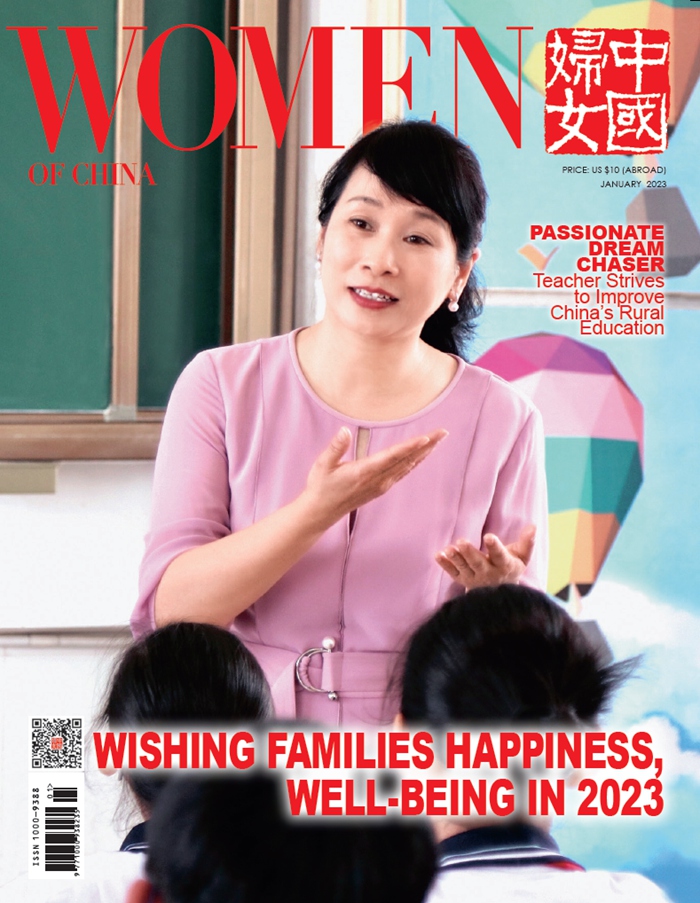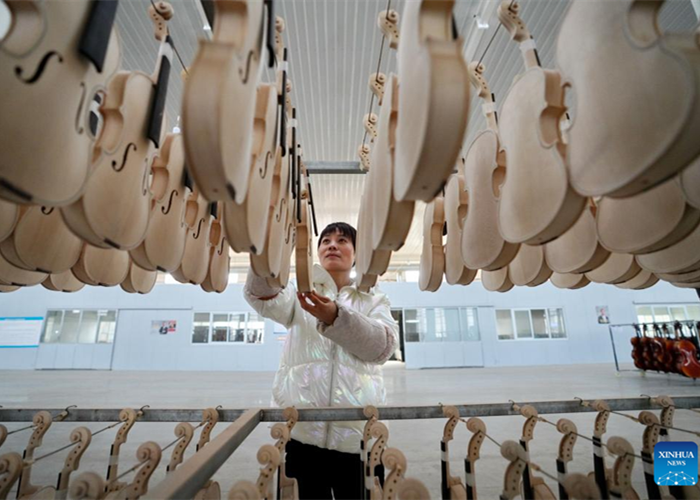Woman Judge Devoted to Exploring Online Trial Mechanism
Jiang Ying, vice-president of the Beijing Internet Court was listed among the 50 most influential figures in global intellectual property circles by the European magazine Managing Intellectual Property.
Having been working in the judicial field for more than two decades, Jiang has handled more than 2,000 IP-related cases and taken part in 20 relevant research projects.
Besides practice and research, she has also served as a visiting professor and postgraduate tutor at universities.
Jiang majored in mechanical manufacturing technology and equipment and got her second bachelor of law in intellectual property in 1994.
After graduating from the university, she became one of the first judges for IP cases at the Beijing First Intermediate People's Court. In 2001, she was assigned by the Supreme People's Court to study International & Comparative Law at the School of Oriental and African Studies of the University of London and gained a master's degree one year later.
When she was working on her two dissertations focusing on domain name disputes and legal liabilities of Internet service providers, respectively, her tutor asked her whether China has internet or IP protection. Jiang was deeply impressed by Western countries' misunderstanding of China or lack of knowledge about China. At that moment, she resolved to work hard to change that situation and show the achievements of China's rule of law to the world.
Jiang has been on a new journey in her career since she was appointed to work as vice-president in the first Internet court in Beijing last year. The Beijing Internet Court, established on September 9, 2018, was set up to facilitate China's strategy of developing its strength in the era of the internet.
According to recent statistics, there are 854 million Internet users in China. As the role of the internet is increasingly important in social economy and people's daily lives, disputes involving the Internet are increasing as well.
Jiang and her colleagues have worked together to integrate the most advanced science and technology such as face recognition, block chains and artificial intelligence into judicial proceedings, enabling the whole trial process-from case filing to execution-to be carried out online.
About 80 percent of the cases are IP-related disputes, but most of them involve Internet copyright, which is a more specific and narrower field than the area Jiang used to work in.
However, Jiang believes that the Internet court should have a broader and more advanced responsibility and mission given that its function is to explore a new mode for Internet trials and judicial governance of cyberspace.
According to Jiang, China has had a head start over the developed countries in Internet trials. They have explored a new trial mode that has earned high recognition in the circle, including peers in developed countries.
She once received delegations from the US, Canada and the UK and found them to be surprised to see the achievements made by the Beijing Internet Court.
Over the past two decades, Jiang has handled more than 1,400 cases, more than 400 of which were challenging and drew great attention from the international community. All of them were heard without error or complaint.
In addition to Internet trials, Jiang promotes the laws involving IP protection through various channels.
She has given lectures in government departments, economic development zones, high-tech firms and universities.
Jiang was also invited to disseminate knowledge of IP protection on mainstream media such as Central China TV and China National Radio.
In September 2013, she opened her account on one of China's most popular social media Sina Weibo, which now has about 70,000 followers.
"My life and career are being developed along with China's development. My dream of rule of law and life values can be realized in my job," Jiang said.
(Source: China Women's News, Women of China, bjwmb.gov.cn/Translated and edited by Women of China)
Please understand that womenofchina.cn,a non-profit, information-communication website, cannot reach every writer before using articles and images. For copyright issues, please contact us by emailing: website@womenofchina.cn. The articles published and opinions expressed on this website represent the opinions of writers and are not necessarily shared by womenofchina.cn.








 WeChat
WeChat Weibo
Weibo 京公网安备 11010102004314号
京公网安备 11010102004314号